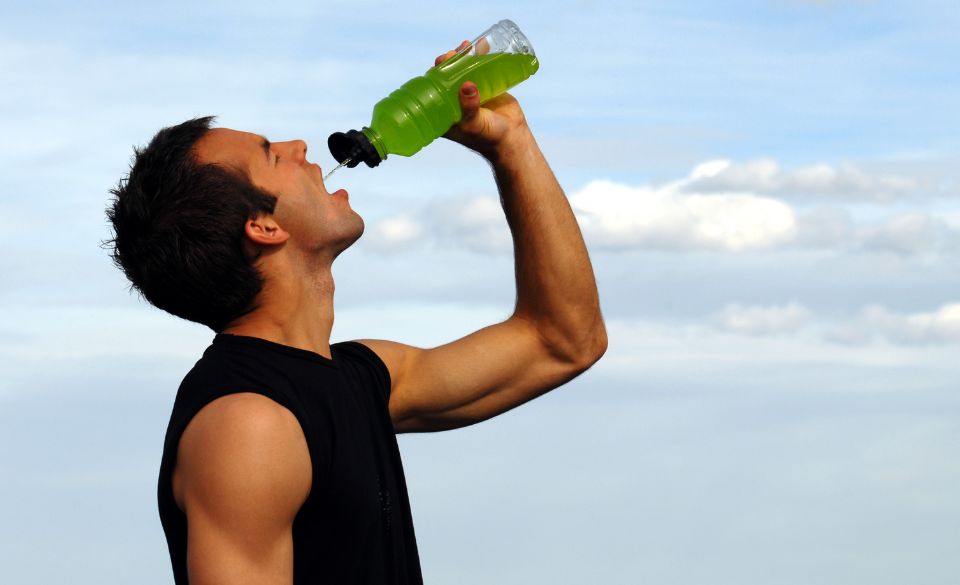
The Best Sources Of Electrolytes For Runners
Page Contents
Importance of Electrolytes For Runners
For runners and athletes, electrolytes have become integral to their physical and mental performance. Electrolytes, such as potassium, sodium, calcium and magnesium, are essential for the absorption and utilization of water, the proper functioning of the central nervous system, muscle contraction, and the regulation of pH levels and blood pressure. Without proper levels of electrolytes, an athlete can be at risk for dehydration, fatigue and cramping.
The most important of the electrolytes for runners is sodium and potassium. Sodium helps the body to retain water and is important in helping the brain communicate with the muscles to initiate physical movements and helps regulate water balance in and outside the cells. A sodium deficiency can lead to cramping, fatigue, weakness and dizziness.
Potassium is the key mineral when it comes to cardiovascular performance. It is necessary for the proper functioning of a healthy heart and muscles, and it helps to regulate the levels of fluid in and outside the cells. It is also important for the production of energy and helps to prevent fatigue and cramps.
Calcium and magnesium are two important electrolytes in a runner’s diet. Calcium is responsible for the formation and build-up of bones and the maintenance of muscle contraction and relaxation. Magnesium helps to regulate nerve impulses, prevents fatigue and cramping, and is important for the absorption of other nutrients.
In addition to the aforementioned electrolytes, athletes and runners also need to have sufficient levels of chlorine, bicarbonate, and phosphorus. Chloride acts as an electrolyte and aids in preserving proper levels of water balance in the body. Bicarbonate and phosphorus help convert food into energy and aid in muscle recovery after exercise.
The importance of electrolytes for runners should not be underestimated. Without proper levels of electrolytes, an athlete can quickly become dehydrated, fatigue easily, experience cramping, and have poor cardiovascular performance. Eating a balanced diet that includes the recommended daily servings of fruits and vegetables, taking electrolyte supplements and staying adequately hydrated before, during, and after runs are all ways that runners can make sure they are getting enough electrolytes for optimal performance.
What Causes Electrolyte Loss In Runners
The body is equipped with electrolytes, which are essential minerals that enable the body to conduct electricity. Without them, certain bodily processes would not be able to take place. Runners, in particular, are subject to electrolyte loss because of the extreme physical activity they engage in during training, race day, and beyond.
Electrolyte loss occurs when sweat is produced at a rapid rate and the electrolytes found in the fluid are depleted due to excessive fluid loss. Runners are particularly at risk for electrolyte loss due to being exposed to extreme temperatures and long hours of exercise in which the body sweat profusely. This can cause a serious imbalance in the body, leading to various health complications.
The most common causes of electrolyte loss in runners are dehydration, heat stroke, and over-exertion. Runners who don’t hydrate properly can easily lead to dehydration, which impacts electrolyte balance. Dehydration is the most common cause of electrolyte loss, as it prevents the body from utilizing electrolytes in order to maintain a normal level. Heat stroke is also a common cause of electrolyte loss, as it causes the body to sweat profusely, leading to an electrolyte imbalance. Lastly, over-exertion can also cause significant electrolyte loss in runners. This occurs when the body is forced to exert itself past its limit and when electrolytes have been depleted.
Finally, runners should also be aware of the signs and symptoms of electrolyte loss. Common signs include dizziness, weakness, muscle cramps, and nausea. If experiencing any of these signs, it is important to get medical treatment as soon as possible to prevent any further damage.
It is important for runners to be aware of the various causes of electrolyte loss in order to prevent it or properly manage it if it does happen. By properly hydrating, avoiding prolonged exposure to extreme temperatures, and ensuring that proper electrolyte levels are maintained, runners can prevent electrolyte loss and reduce the risk of related health issues.
The Best Sources Of Electrolytes For Runners
As an avid runner, you know the importance of consuming food and drinks that provide your body with essential electrolytes especially after an intense workout. Runners need a combination of certain minerals and salts, called electrolytes, to keep them hydrated and their muscles working as efficiently as possible. Without electrolytes, you can suffer from cramping, fatigue and even worse, dehydration. Whether you are running a marathon, or just out for a short jog, it is important to get electrolytes from natural and healthy sources to keep yourself going.
The first thing to remember about electrolytes is that they are a combination of different minerals and salts, which can be lost through sweat. When you sweat, your body loses sodium, chloride, potassium and magnesium, which are essential electrolytes. The best sources of electrolytes for runners come from natural and unprocessed food. Here’s a look at some of the best sources of electrolytes for runners.
Coconut Water: This natural and refreshing drink contains all four essential electrolytes (sodium, chloride, potassium, and magnesium), and it can be easily found at most grocery stores. Coconut water is also known for its hydrating properties and is a great option for runners looking to rehydrate and replenish lost electrolytes.
Bananas: Bananas are one of the oldest fruits known to man and are a great source of potassium for runners. Many athletes often eat a banana before or after a run for an extra boost of energy and electrolytes.
Sea Salt: You may think of sea salt as an unhealthy ingredient, however, it is actually an excellent source of electrolytes. Sea salt contains chloride and sodium which are two essential electrolytes for runners.
Dried fruit: Looking for a sweet treat that’s packed with electrolytes? Dried fruits, like apricots, dates, and raisins, offer carbohydrates and potassium in addition to other essential minerals like calcium and iron.
Salmon: Salmon may not be the first food that comes to mind when thinking of electrolytes; however, it is an excellent source of potassium, magnesium, and omega-3 fatty acids.
Energy drinks: If you find yourself running out of electrolytes and need a quick solution, energy drinks can help replenish lost electrolytes without having to eat a full meal. Choose energy drinks that have natural ingredients like electrolyte-rich coconut water or honey.
Sports drinks: For longer runs or intense workouts, most athletes opt for sports drinks. Sports drinks are formulated to replenish lost electrolytes along with fluids and carbohydrates, but try to limit your intake as they can be high in sugar.
Running is one of the best ways to stay healthy, but you must make sure to refuel your body properly with the right food and drinks. When choosing electrolyte sources for runners, you should always opt for natural and unprocessed foods or drinks. This will not only help your body to stay hydrated and energized, but also ensure that you get the most out of your workout.
How Many Electrolytes Do Runners Need?
As an avid runner, it is important to understand the importance of electrolytes and how they play a major role in your running performance. Electrolytes are minerals found in our bodies and play important roles in muscle and nerve function, as well as blood pressure regulation. During exercise, the body sweats out minerals, or electrolytes, and without replacing them, the body becomes dehydrated and can experience cramping, fatigue, dizziness, and nausea. Runners, in particular, need to pay close attention to their electrolyte balance to maintain energy and body temperature while running.
The four primary electrolytes lost during exercise are sodium, potassium, magnesium, and calcium. Sodium, often referred to as table salt, is an essential mineral for regulating the body’s fluids. This is the electrolyte that most runners worry about replacing since it is lost in sweat and contributes to dehydration. Potassium, another important electrolyte, is an electrolyte that helps maintain muscle contractions and a good balance of minerals. Magnesium is involved in metabolism and muscle contraction and can be depleted in runners who don’t take in enough from their diets. Finally, calcium helps maintain muscle function, maintains the body’s pH balance and helps to regulate blood pressure.
How much of each electrolyte a runner needs depends on the type of race, distance and intensity of exercise. For shorter or slower runs, you may be able to get away with just drinking water and replacing any electrolytes lost through sweat after the run. However, when running longer distances and in higher intensity races, it is important to replace electrolytes during the run to avoid fatigue and dehydration.
Your best option for replenishing your electrolytes while running is to make sure you’re hydrating with an electrolyte solution during your runs. It is important to find a solution with the right balance of electrolytes and one that will not upset your stomach. You can also opt for foods with electrolytes, such as bananas, oranges, and sports drinks.
The bottom line is that knowing how many electrolytes you need as a runner is essential to maintain good health and peak performance. It is important to find a balance that works for you and properly rehydrate with electrolytes during longer runs and races.


